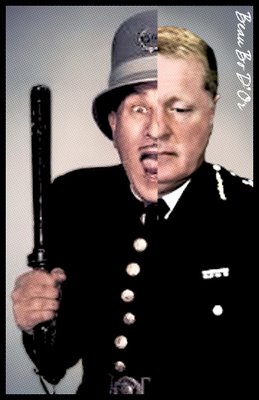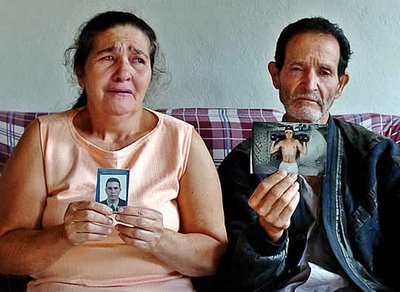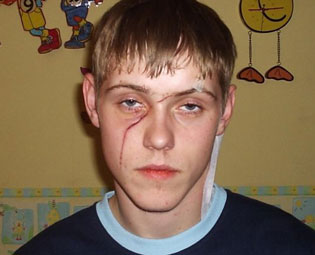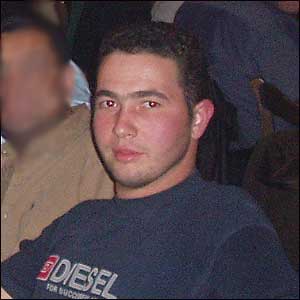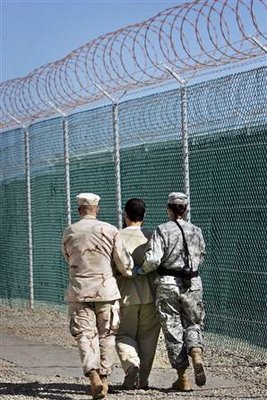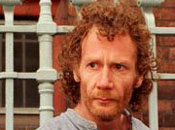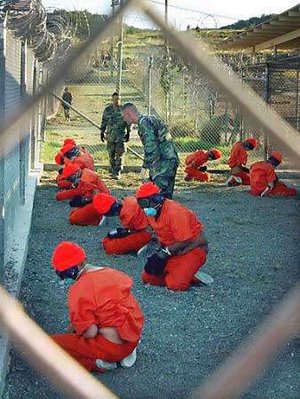Flagrant injustice.
 On the 19th of December the prison population stood at 82,918 (DOC), 1,807 places from "Usable Operational Capacity". Operation Safeguard, which involves the use of police and court cells to hold prisoners, "remains activated", and the early release of prisoners to help with overcrowding is also still in operation. This time last year the prison population was 80,707, showing that although the massive rise in prison population since Labour came to power has slowed, it still continues to grow.
On the 19th of December the prison population stood at 82,918 (DOC), 1,807 places from "Usable Operational Capacity". Operation Safeguard, which involves the use of police and court cells to hold prisoners, "remains activated", and the early release of prisoners to help with overcrowding is also still in operation. This time last year the prison population was 80,707, showing that although the massive rise in prison population since Labour came to power has slowed, it still continues to grow.It would be nice to imagine that all of those 82,918 individuals spending Christmas in their cells thoroughly deserve to be there, but two thoroughly different cases over the last couple of days show the vagaries of the court system.
How many, honestly, would genuinely argue that a custodial sentence for Robert Holding is either appropriate or likely to protect the public? Holding, a milkman aged 72, rather than also selling orange juice and yoghurts to his customers ran a more exotic sideline, supplying cannabis resin to fellow pensioners. Whether they were genuinely using it as Holding argued for "aches and pains" is open to question, but even if they weren't, who exactly in this scheme was losing out or being harmed? Furthermore, Holding pleaded guilty at the earliest opportunity, and although the article doesn't mention it, it seems likely to be his first offence. Either a fine or at the most a community service order would surely suffice and have seen justice being done; yet Judge Lunt warned Holding that when he passes judgement the "likely outcome is an immediate custodial sentence". This is taking the so-called "drug war" and indeed our laws regarding Class C drugs, as cannabis will remain until the government reclassifies it and as result increases the likelihood of not just the "dealers" like Holding going to prison but also his customers, to ludicrous extremes.
If such apparent injustice doesn't bring the law and the courts into disrepute, then surely injustice piled upon injustice does. The Cardiff Three were convicted after police techniques which were subsequently described by the lord chief justice as "almost passing belief". Not in question was that three witnesses who gave evidence against them were treated in a similar fashion - but yet 20 years after the murder of Lynette White, all of them found themselves being sentenced to 18 months in prison after they were convicted of perjury. Two of them, Leanne Vilday and Angela Psaila, who at the time had been working as prostitutes, pleaded guilty, possibly misguidedly but presumably because they expected that doing so would lessen any custodial sentence. The third defendant, Mark Grommek, pleaded not guilty on the grounds that he had committed perjury under duress, again, something not contested by the court. They were however all convicted on the grounds that the duress they had suffered was not of the kind which was likely to make them either fear for their lives or believe that they were likely to suffer serious injury, making their testimony voluntary rather than involuntary. The judge in the case, Mr Justice Maddison, ruled that despite Grommek's testimony that he was on the verge of a nervous breakdown due to the police's actions, he still had "ample opportunity" to tell the truth. Maddison even accepted that the police's conduct had been "unacceptable in a civilised society", yet he decided that 20 years on, when those really in the dock should be the police themselves, sentences of a year and a half were the best course of redress.
How exactly is the public by served by all 4 individuals spending time in prison? We certainly aren't by the cost, which averages out, according to a written answer given in parliament in April 2006, at a staggering £40,992 a year. Ultimately responsible are not the judges and police that enforce the law but instead our politicians, who are completely hooked on punitive measures and increasing the prison population, which has risen by 25,000 since 1996. Both Labour and the Tories seem to imagine that despite all the evidence to the contrary, they can build their way out of overcrowding. The Tories even want to cancel the early release scheme, which would swiftly result in the police cells being filled again, at further exorbitant cost to the taxpayer. By the same token, it's been noted repeatedly that when judges believe there to be a punitive mood, either in the public or in politicians, or indeed both, they pass harsher sentences. Often whipped up by the tabloid press, the evidence in fact suggests that such punitive prison policies are dropping in popularity: a recent poll gave an almost equal split between those who thought prison worked and those who wanted alternatives.
On the whole, the courts do a decent job, and mainly get the balance right. It sometimes takes cases like those of Robert Holding and the second Cardiff Three to force reform through, to show that such expense and waste is not the answer. We shouldn't expect however that those so wedded to authoritarian crime polices will have their minds changed, regardless of the evidence of such flagrant injustice.
Labels: Cardiff Three, crime, crime policies, injustice, prison reform, prisons, Robert Holding
